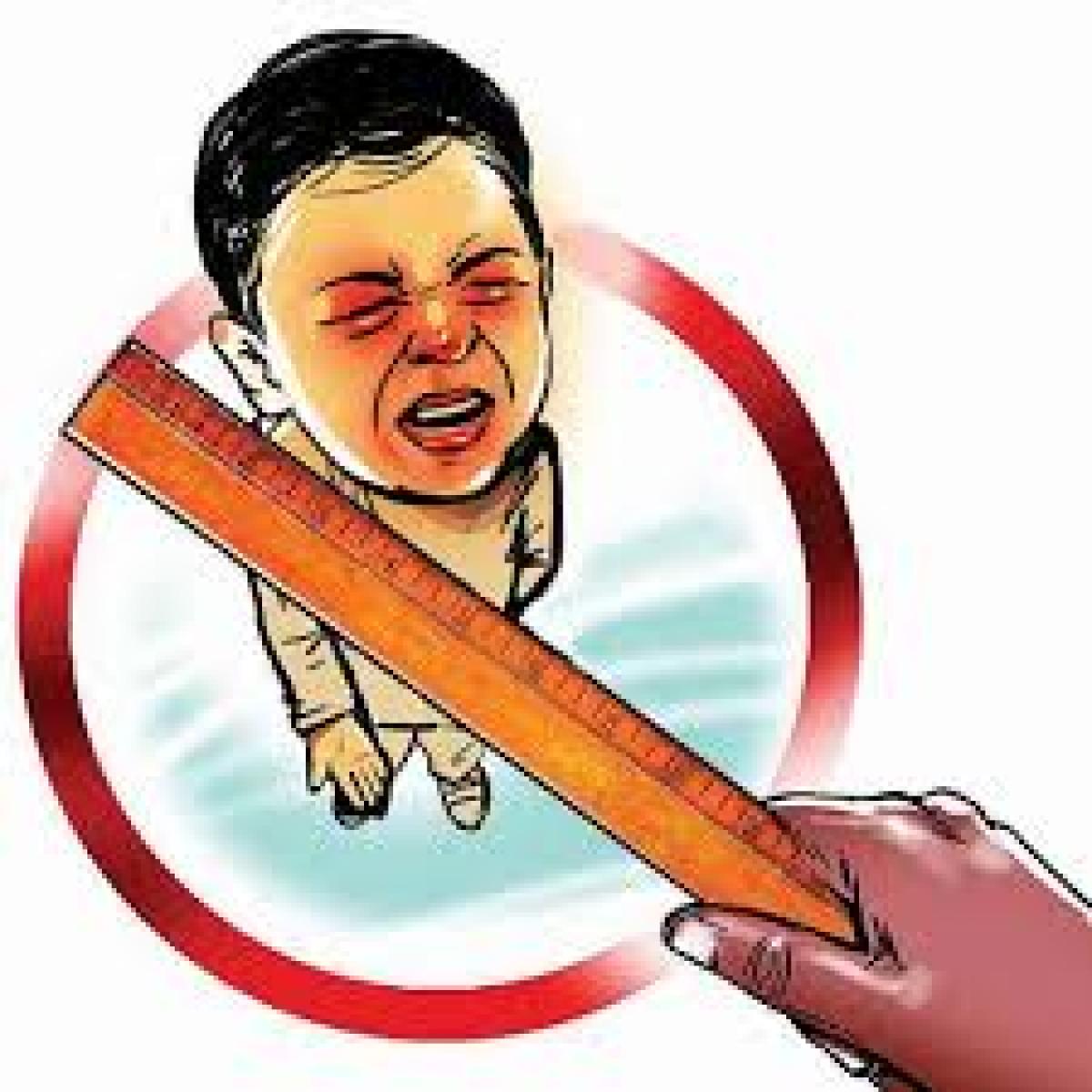Don’t punish the tender

The tragic death of a school girl in Karimnagar district due to corporal punishment for not completing home work has once again highlighted the urgent need for reforming our schools. Despite clear guidelines banning corporal punishment, such horrifying incidents occur somewhere or other. The situation reinforces the observation of Yashpal Committee that education has become torture.
The tragic death of a school girl in Karimnagar district due to corporal punishment for not completing home work has once again highlighted the urgent need for reforming our schools. Despite clear guidelines banning corporal punishment, such horrifying incidents occur somewhere or other. The situation reinforces the observation of Yashpal Committee that education has become torture.
The Article 39 of the Constitution calls for protection of the tender age of children and their development in a healthy manner with freedom and dignity. But, as the National Commission for Protection of Child Rights (NCPCR) observed, our schools are not equipped to appreciate the difficulties of the first generation learners.
A large body of international research has revealed the negative outcomes of corporal punishment. Still, there are many teachers, schools and even parents who believe that awarding corporal punishment is the efficient way of making child study and perform well. Even the United Nations called for appropriate measures to ensure that school discipline is administered in a manner consistent with the child’s human dignity.
The Delhi High Court in a moving judgement in 2000 said, “Child being a precious national resource is to be nurtured and attended with tenderness and care and not with cruelty. Subjecting the child to corporal punishment for reforming him cannot be part of education.”
Issuing guidelines in this regard in 2007, the NCPCR clearly states that the onus of responsibility in safeguarding children from punishment lies with the schools, teachers, education administration at all levels as well as all those responsible for their management equally. All children are to be informed through campaigns and publicity drives that they have a right to speak against corporal punishment and bring it to the notice of the authorities.
They must be given confidence to make complaints and not accept punishment as a 'normal' activity of the school. Every school must have a forum where children can express their views. Further a box where children can drop their complaints, even if anonymous, has to be provided for in each school. There has to be a monthly meeting to review the complaints and take action.
Parents as well as children are to be empowered to speak out against corporal punishment without any fear that it would have an adverse effect on children's participation in schools. The education department at all levels – block, district and State – are to establish procedures for reviewing the responses to the complaints of children and monitoring the action taken on the same.
Enforcing such guidelines should be of urgent priority for the educational administrators at all levels. Besides, teachers have to be trained in ensuring positive discipline among students. A massive campaign is needed to convince parents, teachers and educational managements that corporal punishment is not the right way to either achieve discipline or ensure better performance.
The schools should make special arrangements to teach late achievers. The school atmosphere should motivate the child rather than subject oneself to cruel competition. Comprehensive reforms are needed to tackle this menace.

